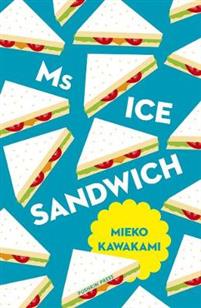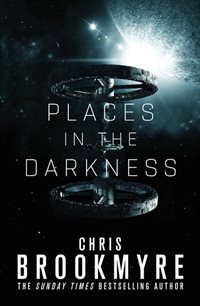Uncommon People by David Hepworth
 Wednesday, December 6, 2017 at 9:35AM
Wednesday, December 6, 2017 at 9:35AM 
Published by Henry Holt and Co. on November 21, 2017
David Hepworth argues that the era of the rock star has passed. Uncommon People chronicles their rise and fall, from 1955 to 1994. After talking about what makes someone a rock star and what we expect from a rock star, Hepworth explains that he wants to profile individual rock stars: who they were before they achieved rock fame, how that happened, and what it did to them. He does that by selecting and discussing an important day in rock history and using that day to provide a window into the star’s life. Targeting a single day is presumably a strategy to keep the book from becoming unwieldy.
Hepworth’s method is to talk about that significant event, and then to provide some background about the rock star in question. He often discusses other significant events in that year, or trends that began in that year. At the end of each chapter, he provides a playlist of 10 songs or albums from that year.
Many excellent and influential rock musicians are left out of the book, presumably because they don’t meet Hepworth’s loose definition of a rock star, which includes glamour, authenticity, late nights, recklessness (at least in image), swagger, sexual charisma, self-assuredness, good hair, and a bunch of other qualities that Hepworth scatters through his introduction. In the end, a rock star is whatever you want a rock star to be, and you know one when you see one.
Readers can quibble with his choices. My quibble is that the Beatles, individually or collectively, are given four entries, but Neil Young receives only some passing mentions. What, he doesn’t have good hair? And Eric Clapton gets mentioned over and over but doesn’t deserve his own chapter?
Readers can also quibble about whether all of his chosen rock stars perform rock music, which might or might not be fundamental to the definition of a rock star. I think of Madonna as a pop star, of Bob Marley as a reggae star, of Bob Dylan as a folk-rock star, and of Kurt Cobain as a punk-rock star, yet they all get chapters. Readers might disagree with Hepworth’s choices, but that’s part of the fun of reading a book like this.
Uncommon People provides a bunch of interesting, gossipy information. Aging rock fans will probably have heard many of the stories before, but it’s fun to hear them again, and anyone who isn’t a rock historian will probably learn something new by reading the book. Some of the significant events seem to have been chosen because Hepworth happened to be there, but I suppose that’s inevitable when a book is written by a rock journalist.
Will you learn anything particularly insightful about the phenomenon of rock stardom or the commonalities that link rock stars together? Probably not. They are what they are, and once again, you know one when you see one.
The profiled rock stars and their significant days are:
1955 - Little Richard (creates the “clean” version of Tutti Frutti which, in its original version, was pretty far from clean); 1956 - Elvis (drives from Memphis to Tupelo and realizes just how much his life had changed); 1957 - Paul McCartney and John Lennon (meet for the first time); 1958 - Jerry Lee Lewis (unsuccessfully explains his 13-year-old wife to the London press); 1959 - Buddy Holly (dies in a plane crash, creating the first full-length rock star story).
1960 - Brian Rankin, a/k/a Lee Marvin (the Shadows release the guitar-hero single “Apache”); 1961 - Bob Dylan (earns his first review by performing at Gerde’s Folk City); 1962 - Ringo Starr (replaces Pete Best as the Beatles’ drummer); 1963 - Rolling Stones (a new manager kicks Ian Stewart out of the group and thus fashions the band’s lasting image); 1964 - Brian Wilson (melts down and stops touring with the Beach Boys).
1965 - Roger Daltrey (punches Keith Moon in a dressing room in Denmark as The Who makes chaos a trademark of rock bands); 1966 - Jimi Hendrix (plays in London with Eric Clapton and Cream); 1967 - Janis Joplin (plays at Monterey and redefines the rock star image); 1968 - The Beatles (begin their ending as John gets with Yoko and Paul gets with Linda); 1969 - Black Sabbath (changes the band’s name from Earth).
1970 - Jim Morrison (reinforces the role of the crotch in rock and roll); 1971 - Lou Reed (makes a comeback); 1972 - Rolling Stones (bring the concept of “big” to concert tours); 1973 - David Bowie (retires after inventing the rock star as an art project); 1974 - Bruce Springsteen (writes “Born to Run” and creates a legacy).
1975 - Bob Marley (records a live concert that Hepworth attended); 1976 - Stevie Nicks (is worshipped by fans at a Fleetwood Mac concert in Tampa); 1977 - Elvis (dies); 1978 - Ian Dury (records “Hit Me with Your Rhythm Stick”); 1979 - Led Zepplin (plays a weekend concert over two weekends and proves that Robert Plant and Jimmy Page have turned into dinosaurs).
1980 - John Lennon (dies); 1981 - Duran Duran (give birth to the intersection of sex and music videos); 1982 - Ozzie Osborne (sleeps on the bus while his guitarist crashes a stolen plane, although the chapter is mostly about the use of cocaine by rock and Hollywood stars); 1983 - This is Spinal Tap (spoofs but captures the sad reality of rock star wannabes); 1984 - Michael Jackson (sets fire to his hair).
1985 - Bob Geldof (makes rock noble by creating Band Aid, which spawned Live Aid and cemented U2 as rock stars); 1986 - Bob Dylan (makes a comeback, although the chapter is mostly about the interview that Dylan gave to Hepworth); 1987 - Axl Rose (makes the “Welcome to the Jungle” video emblematic of the sensationalist ethic of hard rock); 1988 - Elton John (auctions his old stuff so he can acquire new stuff); 1989 - Bonnie Raitt (goes to rehab while confronting middle age, as do Eric Clapton, Ringo Starr, and about half the rock world).
1990 - Madonna (touches herself on stage in Toronto); 1991 - Freddie Mercury (dies of AIDS); 1992 - Red Hot Chili Peppers (appear naked on the cover of Rolling Stone without guitarist John Fruscuiante, who went a bit bonkers); 1993 - Prince (changes his name to a symbol); 1994 - Kurt Cobain (dies, bringing the rock star era to an end).
One can argue that rock stars didn’t end with Cobain. If Madonna is a rock star, why isn’t Beyoncé? If Bob Marley was a rock star, why isn't Jay Z? Hepworth suggests that pop stars in the digital age are the product of marketing and have less purity than those in the 40 years that the book covers. Maybe that’s true, although whether that should disqualify recent artists from being regarded as rock stars is less clear.
More to the point, books have to end, even if music doesn’t. The 40 years covered by Uncommon People produced some great music, and the book captures some great moments.
RECOMMENDED



